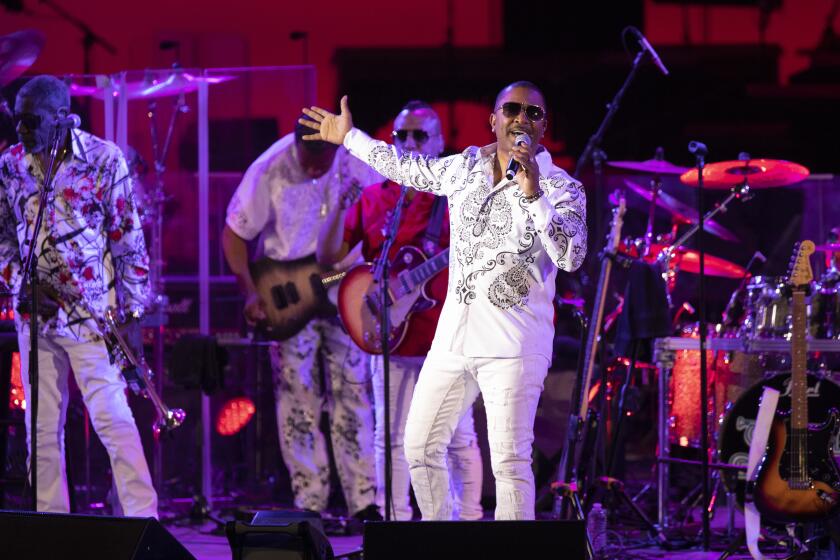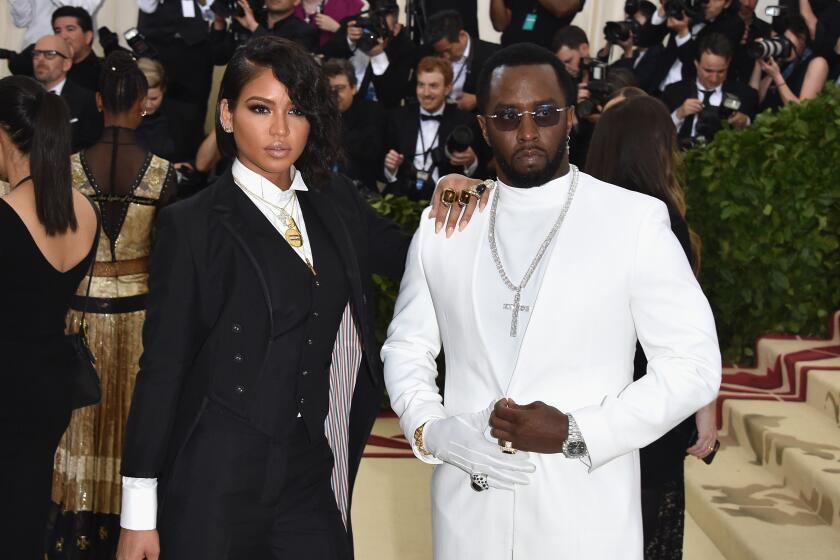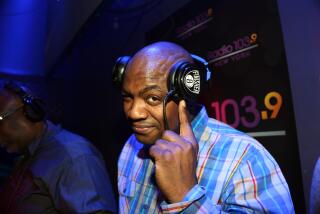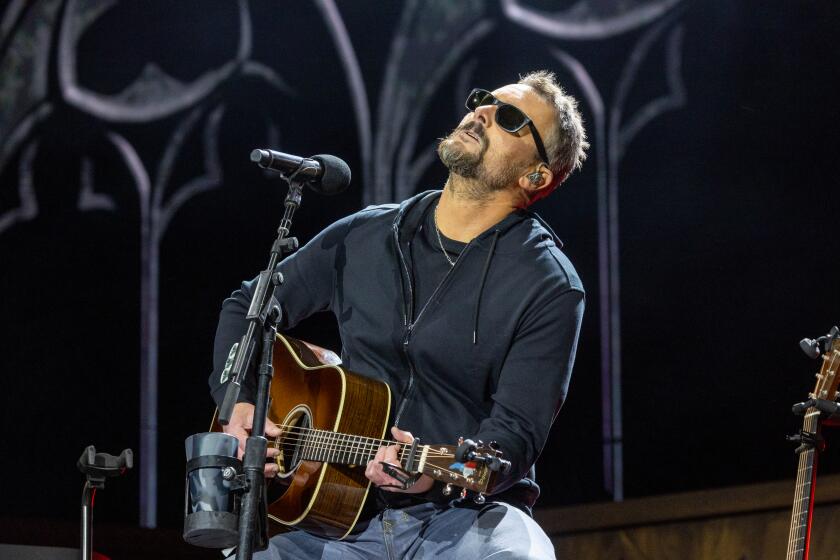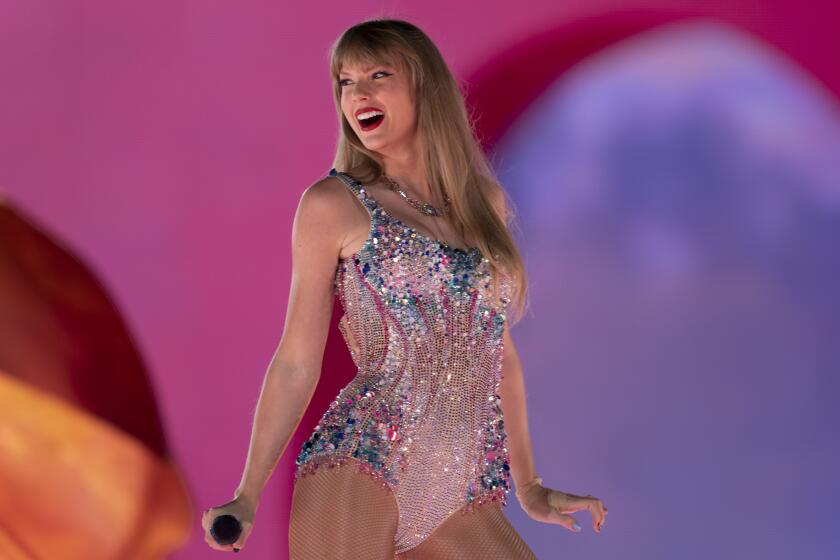George Brown, Kool & the Gang co-founder and drummer, dies at 74
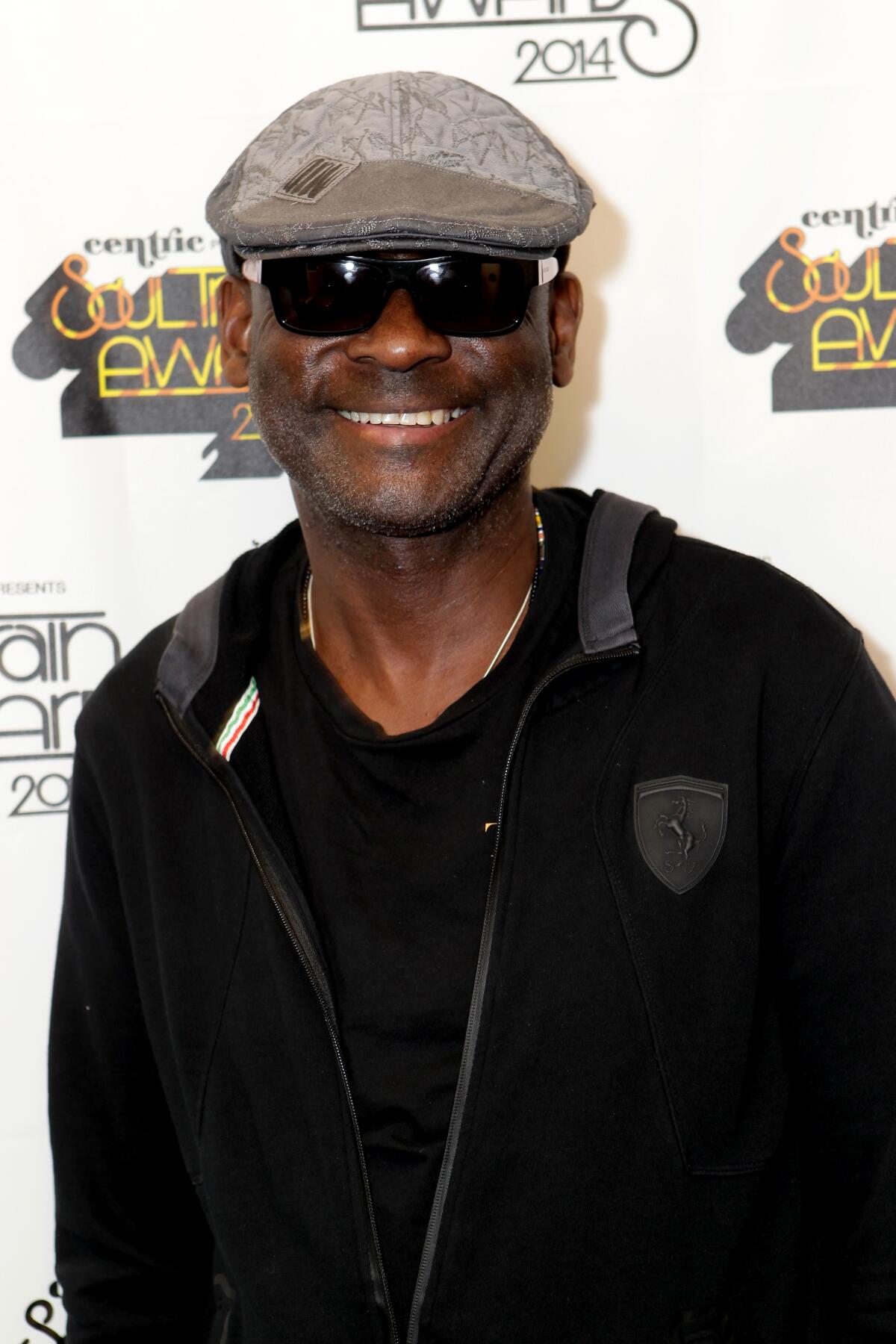
George Brown, a founding member of Kool & the Gang who played drums with the band and co-wrote such enduring standards as “Celebration,” “Jungle Boogie” and “Ladies Night,” died of lung cancer in L.A. on Wednesday. He was 74.
His death was announced by a representative from the band’s record company.
Brown started playing with the seven musicians who became Kool & the Gang in 1964, in Jersey City, N.J. They woodshedded for nearly a decade before the group finally had a breakout hit with the riotous “Jungle Boogie” in 1973. Over the next dozen years, they had 25 Billboard R&B Top 10 hits, evolving from funk to disco to quiet storm.
‘Hallelujah!’ said one concertgoer as veteran soul-funk group Kool & the Gang welcomed a capacity crowd to the public reopening of the Hollywood Bowl.
They crossed over into the pop charts numerous times, reaching the Top 10 during the heyday of disco with “Ladies’ Night,” “Too Hot,” “Get Down on It” and “Celebration” — all songs featuring vocalist James “J.T.” Taylor — then striking a softer, smoother note with the subsequent “Joanna” and “Cherish.” Throughout it all, Brown anchored the group as its drummer, creating rhythms that earned him the nickname “Funky” and were sampled by hip-hop and pop artists including A Tribe Called Quest, the Beastie Boys, Madonna, De La Soul, N.W.A and Cypress Hill.
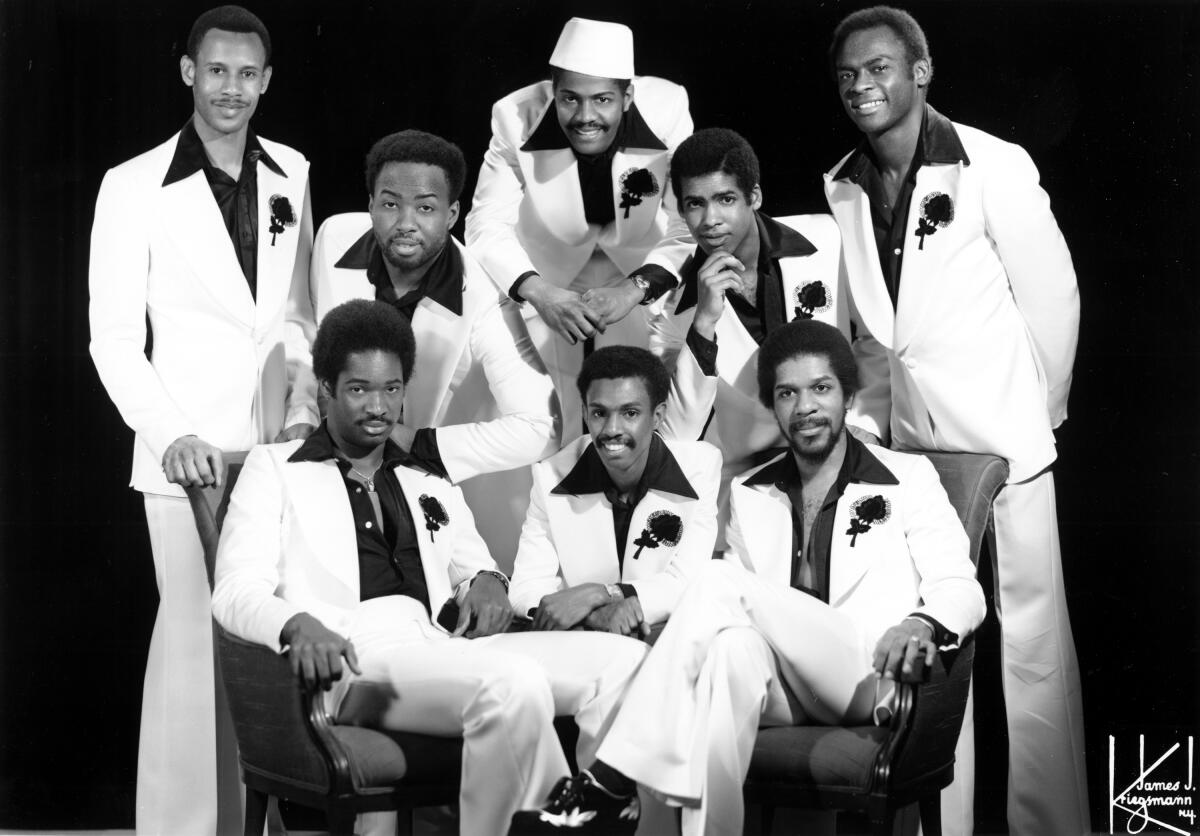
The group’s songs often appeared on film and television soundtracks — Quentin Tarantino’s “Pulp Fiction” notably used “Jungle Boogie” — and remained staples on the radio into the 2020s.
Born on Jan. 15, 1949, Brown was drawn to his instrument at an early age, drumming on household items with butter knives before he received his first drum kit. As he grew, he cultivated an appreciation for such jazz drummers as Art Blakey, Buddy Rich and Elvin Jones. Brown lived in the same building as Ricky West, a keyboardist who introduced the drummer to saxophonist Ronald Bell and trumpeter Robert Mickens. The quartet started gigging as a jazz combo in the early 1960s and they retained the name Jazziacs after expanding the group to feature Ronald’s brother Robert “Kool” Bell on keyboards, Dennis “Dee Tee” Thomas on saxophone and guitarist Charles Smith. As they played throughout New York City, they ran through a number of names, including the New Dimensions, the Soul Town Band — which was a moniker for their Motown covers act — and Kool & the Flames, before adopting Kool & the Gang in 1969.
Signing with De-Lite Records, Kool & the Gang released an instrumental self-titled debut in 1970. While the group retained jazz elements — its 1972 album “Good Times” contained a tribute to John Coltrane — it moved steadily toward funk, incorporating singing by the time it released its fourth album, “Wild and Peaceful,” in 1973. The addition of joint vocals fueled “Jungle Boogie” and “Hollywood Swinging,” the singles that brought the group their first R&B and pop hits.
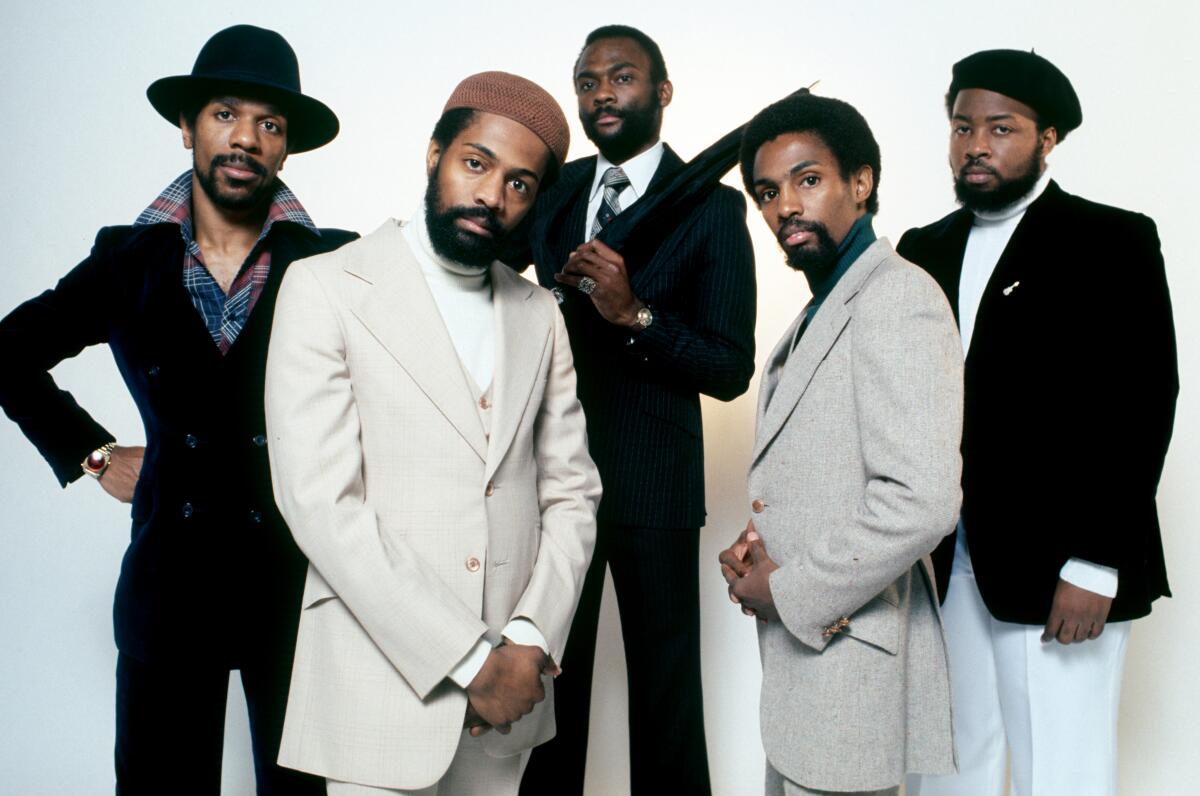
Kool & the Gang stayed on the R&B charts through the mid-1970s thanks to hits “Spirit of the Boogie,” “Caribbean Festival” and “Love and Understanding (Come Together),” yet despite the group’s inclusion on the soundtrack to the era-defining “Saturday Night Fever” in 1977, it had difficulty adjusting to the onset of disco in the late 1970s. The band revived its fortunes in 1979 by adding vocalist James “J.T.” Taylor and hiring Eumir Deodato — a Brazilian disco producer who had a hit in 1974 with a glitterball revision of “Also Sprach Zarathustra (2001)” — to helm “Ladies’ Night.” The combination of Taylor’s smooth vocals and Deodato’s stylish production brought Kool & the Gang a series of massive crossover hits during the late 1970s and 1980s. “Celebration” became an all-purpose anthem, the unofficial soundtrack to the return of the Iran hostages in 1981 and often heard at sporting events, weddings and bar mitzvahs throughout the decade and beyond.
Hip-hop mogul Sean ‘Diddy’ Combs is accused of rape, abuse, sex trafficking and more by former partner Casandra Ventura, a.k.a. Cassie, in a new lawsuit.
The softer “Joanna” and “Fresh,” popular on adult contemporary radio, marked the band’s last blush with the pop charts. Taylor left the group at the end of the 1980s, the first in a series of revolving departures that lasted over the subsequent decades. Along with Robert “Kool” Bell and Thomas, Brown lasted through every incarnation of Kool & the Gang into the 2020s, sticking with the group through the reunion and anniversary tours, as well as a slot opening for Van Halen in 2012.
Over the course of its career, Kool & the Gang won two Grammy Awards and were inducted into the Songwriters Hall of Fame in 2018.
During the final year of his life, Brown produced Kool & the Gang’s “People Just Want to Have Fun” album and published his memoir, “Too Hot: Kool & the Gang and Me.”
Brown is survived by his wife, Hanh Brown, and his children Dorian Melvin Brown, Jorge Lewis Brown, Gregory Brown, Jordan Xuan Clarence Brown and Aaron Tien Joseph Brown.
More to Read
The biggest entertainment stories
Get our big stories about Hollywood, film, television, music, arts, culture and more right in your inbox as soon as they publish.
You may occasionally receive promotional content from the Los Angeles Times.
